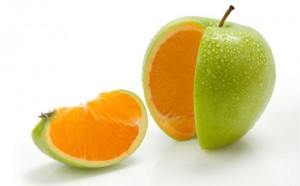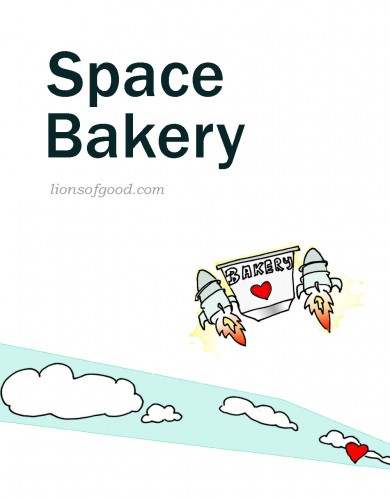 If you’re a rebel at heart, you’ll like this game: List everything that everyone else is doing in your industry or category, and defy as many of them as possible.
If you’re a rebel at heart, you’ll like this game: List everything that everyone else is doing in your industry or category, and defy as many of them as possible.
There’s no value in being another “me too” organization that gets lost in the crowd. There’s also no value in copying the dysfunctions of larger corporations crippled by bureaucracy. It also makes no sense to compete where you’re weak — you should always play to your strengths.
There are things that larger organization can do that we can’t, and conversely, there are things that our smaller organization is able and willing to do that a larger organization isn’t.
Here’s how we played the “Opposites Game” at Maya’s Hope:
1. Find out what people don’t like, and don’t do any of that
Many people are wary of larger charities: The bureaucracy leeching money away into black holes. CEOs paying themselves lavishly. People are concerned about never really knowing where the money goes, what really happens to the money, or how many hands skim from the pot before they reach the people who need it. There was also a lack of a personal connection — children are often just numbers and names.
Maya’s Hope takes advantage of that by being against “big”, and being proud to be small.
2. Have a unique philosophy
Almost all charities are about “giving back”. However, the core philosophy of Maya’s Hope is more personal. Instead of some broad notion of “social justice”, Maya’s Hope focuses on an individual’s personal experience.
The motivator is not a sense of justice, but the feeling of gratitude that all of us have toward someone who’s made a big difference in our lives — just like how Maya’s mother’s love still encourages Maya to “pay it forward” to the children she meets, even after she’s passed.
You don’t pay love back,
you pay it forward — Lily Hammond
3. Take a unique approach
Many organizations prey on fear, pain and guilt, and make people feel horrible in order to get what they want. Maya’s Hope doesn’t resort to such tactics because 1) we wanted to treat people with more respect, and 2) we wanted to focus on long-term relationships rather than trying to extract as much money as possible from someone in one transaction, discarding them and preying on the next person… as if people are wallets with legs.
So in contrast, the position is one of optimism… because no one sticks around long with anyone who makes them feel like shit. Maya’s Hope takes on the role of Agent of Happiness, instead of Harbinger of Doom or Pitiful Panhandler.
Instead of bullying people into taking action with shocking photos or sad stories, we wanted to encourage people to do good by showing them the successes of other people doing good. Maya’s Hope publishes regular Happy Stories, and we use Facebook to show exactly how contributions from other people in the “Maya’s Hope family” impact the children.
Few things motivate people better than showing them proof of other people like themselves doing good and making a difference.
4. Deliver a unique experience
Large corporations tend to be sternly opposed to being personal or human in any way. And because bureaucracy requires everything to please everyone up the chain of management and sideways, by the time something gets to see daylight, it’s usually completely stripped and devoid of any semblance of humanity.
Even those that are willing to be personal are usually only capable of pretending to be personal (e.g. friendly typography and graphics, but without any real human substance behind it). The truth is, it’s hard to be honestly personal.
This is an advantage for small organizations, because we can go where larger corporations aren’t willing to go, and deliver an unrivaled experience.
Since Maya’s Hope was a result of a mother’s unconditional love, we made the organization’s theme about Family. In addition, the donors/sponsors are treated as investors. We provide a window into the lives of the children in impoverished areas of the world, taking advantage of the speed and efficiency of modern technology (web publishing, social media, digital photos and video).
This transparent, accountable and personal approach made it necessary to build solid communication with institutions in Philippines and Ukraine. It made it critical to only work with those who appreciate the importance of cooperation, being transparent and can provide us with frequent updates (rather than institutions that only know how to take money but never want to do any work in return).
Maya’s Hope’s focus on journalism infects the institutions they work with on the ground, ultimately bringing everyone in the family closer. And everyone is better off because of it.
It is a mistake to think that charities have no goods or services to sell. The most valuable product that every charity has and must “sell” is: Information.
Here’s a list of some other things we do differently at Maya’s Hope:
- Personal (1st person & conversational language, updates, pictures, videos)
- Everyone involved is considered “Family”
- Honest, straightforward, real, no B.S.
- Focus on transparency
- Maya is hands-on, visits orphanages in person
- 100% volunteers, all donations meant for kids go directly to the kids (although this may change in the future)
- Focus on helping the children help themselves. No handouts.
- Be a journalist and media station (there are people who want to help, they just need to be able to see for themselves before deciding to help)
- No persuasion, pushing or bullying: deliver overwhelming proof of positive change.
- Be a messenger, matchmaker and assistant (not a panhandler).
- Positive tone and themes (instead of negativity, gore and guilt-trips)
- Donors and sponsors are treated as life-long investors, rather than ATMs
The items above are not necessarily enunciated, but they are infused into all aspects of Maya’s Hope to create a congruent experience. Because remember… Everything is marketing.
How well does your business do at the “Opposites Game”?
Next: The psychology of modern giving



Add your comment: